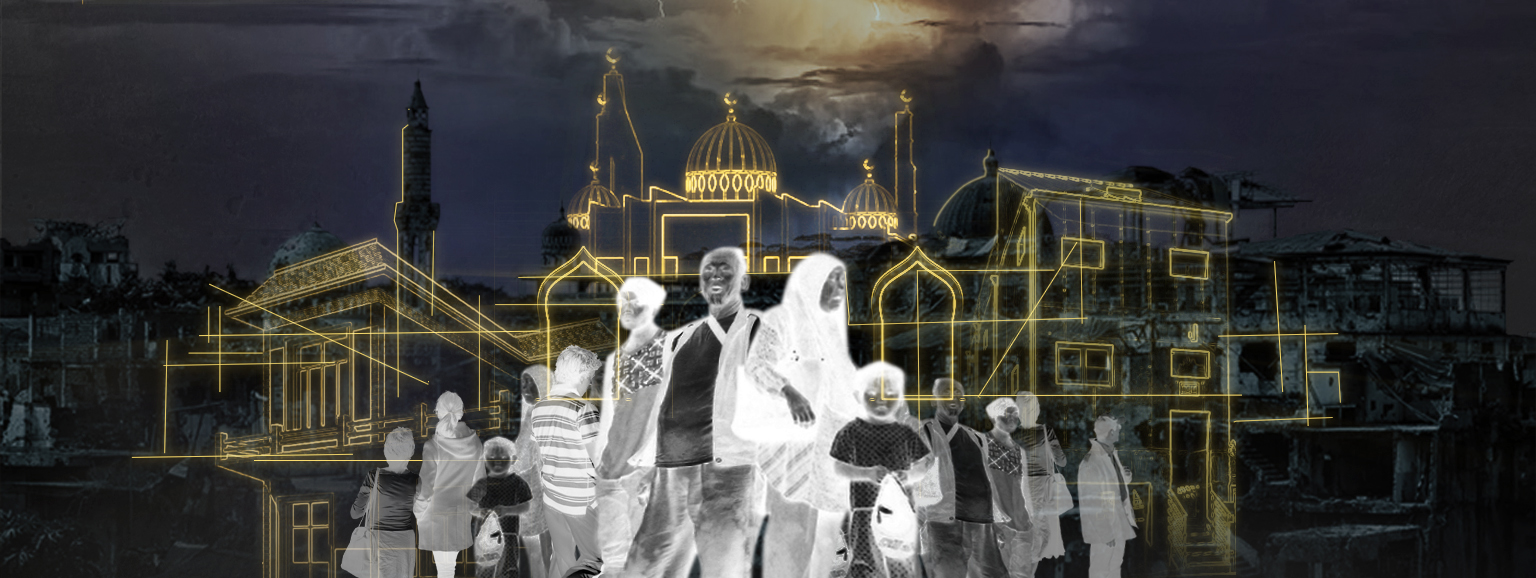|
Getting your Trinity Audio player ready...
|
T
he bridges and the roads in Marawi City in southern Philippines are sparkling and brand new, but close to six years since followers of jihadist group Islamic State laid siege to its city center, it’s still the sight of abandoned and bombed out homes that immediately welcome visitors of the former ground zero.
Past the Mapandi Bridge, which separated the safe zone and the battle area in 2017, the pink walls of a newly painted commercial building stood tall amid ruins. Nearby, a repaired house was painted a neutral gray. They were few and far between.
The former site of battles is now called MAA or the “most affected areas.” Life stood still here unlike the rest of Marawi City, called the least affected areas or LAA, where residents returned and rebuilt after the siege and new hotels have risen as well as coffee shops that cater to visiting donors and development agencies.
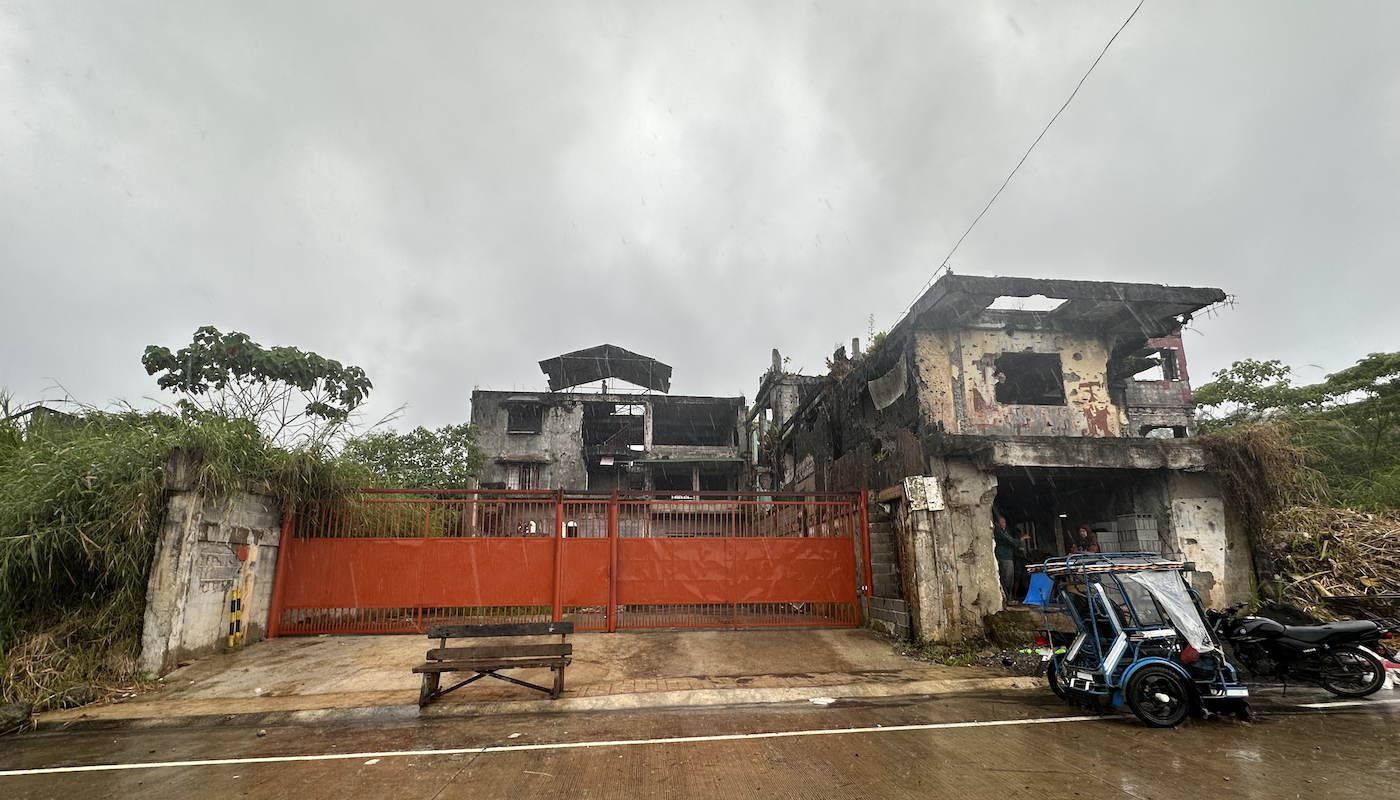
There was a heavy downpour when the Philippine Center for Investigative Journalism (PCIJ) visited the MAA in late January. The first villages upon entry showed the presence of some residents, and a few tricycles and private vehicles drove by. The humming sound of electric saw and hammers hitting nails could be heard here and there.
But deeper into the MAA, there was hardly anyone. There were new gates but no work was done on the rest of the property.
Homes in these areas survived military air strikes during the battles. The government wanted to demolish many of them at the start of the rehabilitation work, citing safety considerations, but residents protested. The large graffiti of the names and mobile numbers of owners on walls pockmarked by bullets and bombs are declarations of ownership, an assertion of their right to decide what they would do with the property. A few cases of illegal demolition are pending in courts against Task Force Bangon Marawi (TFBM), or Task Force Rise Up Marawi, the agency in charge of rehabilitation.
Time has doomed the abandoned Marawi homes to decay. But not the government buildings. They were bright and shiny. New barangay complexes, which cost almost P14 million (around US$254,000) each, have been completed as well as village mosques and some school buildings. The police, jail, and fire stations were almost done.
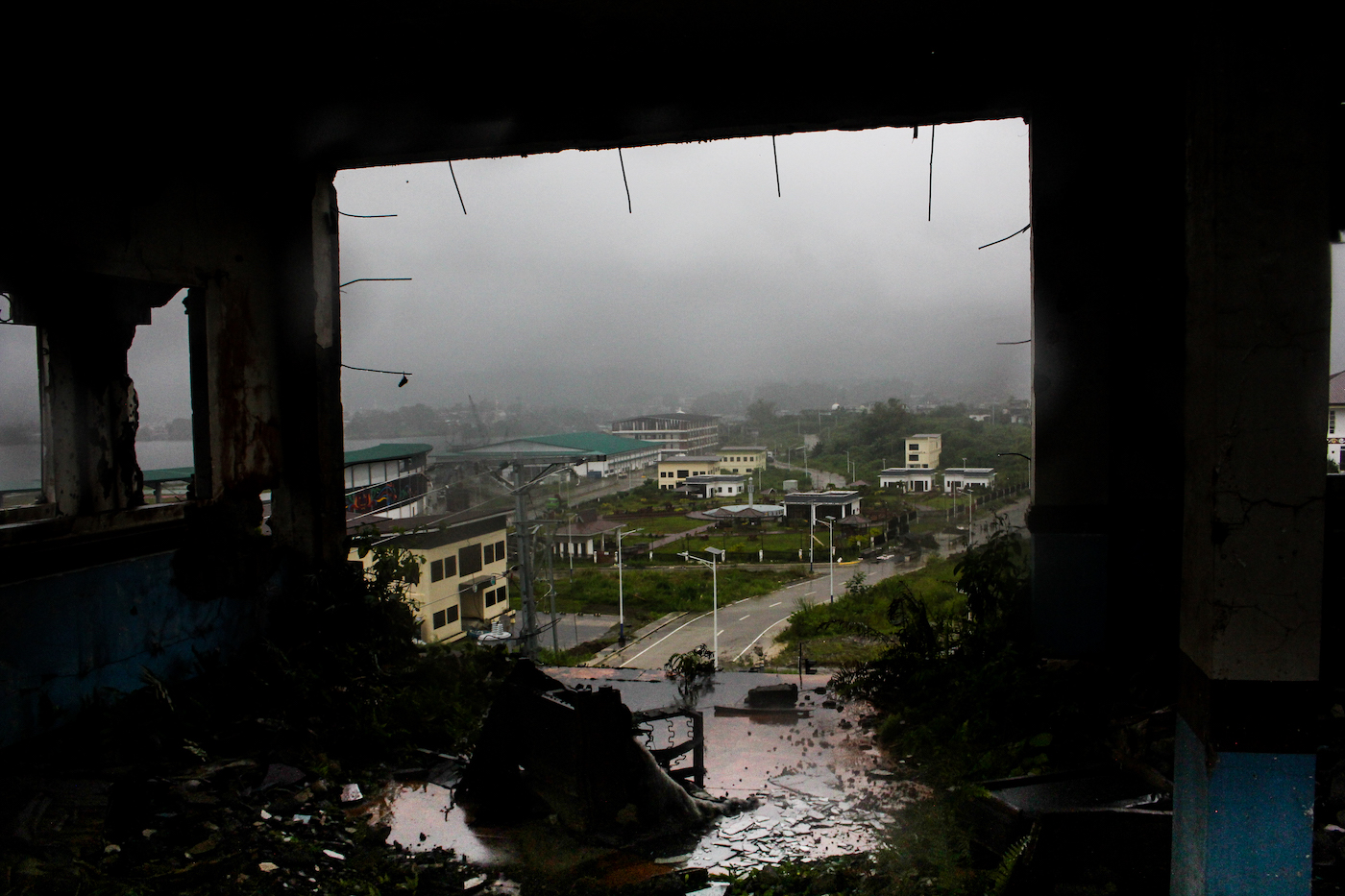
Electricity lines were in place. There was no power yet but the MAA is expected to be connected soon. There were sun-powered light posts, too. It’s the water source that is problematic.
A total of P10.2 billion (US$185 million) was released for the rehabilitation through the years. The big-ticket infrastructure projects could be seen past the rows of derelict homes, where modern public infrastructure was built by the banks of scenic Lake Lanao. Many buildings were ready, but without the residents, they were empty.
Samira Gutoc, an NGO leader, said the residents’ return to their properties should have been the priority. She has been fighting for residents’ right to return “without conditions.”
“Each house is crying for help. Bringing back people became secondary. Isn’t the battlecry ‘right to return’?” Gutoc said.
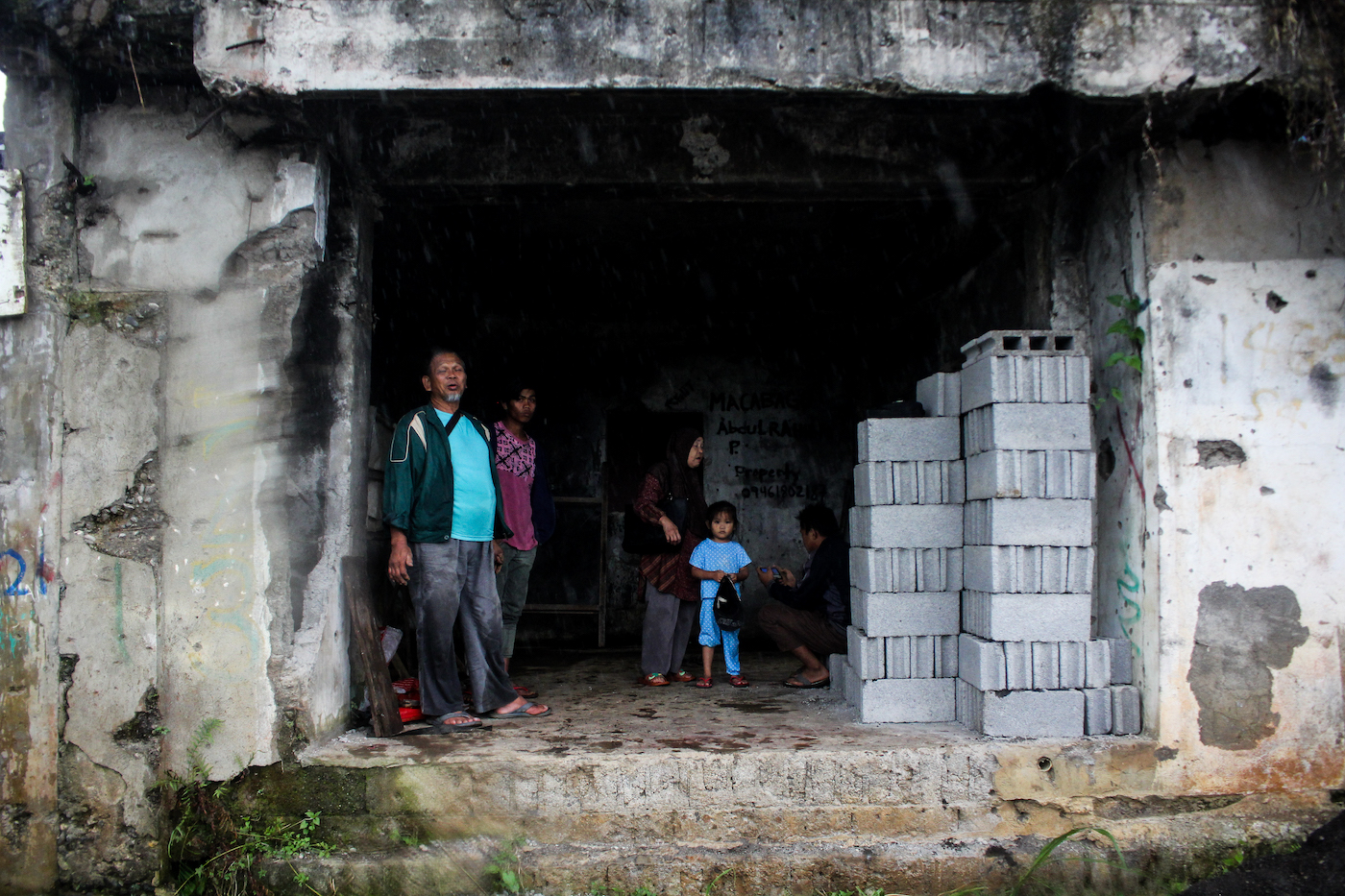
Not even 1% of MAA residents have returned
Only 100 families have been permitted to return to the MAA after some repairs or reconstruction, based on data from TFBM, although residents claimed a few families have returned without government approval. It is not even 1% of over 17,793 households displaced at the MAA during the siege.
A total of 953 families were resettled in permanent shelters while 4,916 others are still in transitory shelters elsewhere. The rest have found temporary homes elsewhere.
 PCIJ chanced upon Rashmina Macabago, 57, at her family compound in her village, Barangay Kapantaran. They secured a building permit before the pandemic hit in 2020, but they did not have the funds to repair the property. She and a few family members arrived with some construction materials to reinforce a post that was already tilting. They hoped to avert any further damage to the structure.
PCIJ chanced upon Rashmina Macabago, 57, at her family compound in her village, Barangay Kapantaran. They secured a building permit before the pandemic hit in 2020, but they did not have the funds to repair the property. She and a few family members arrived with some construction materials to reinforce a post that was already tilting. They hoped to avert any further damage to the structure.
“We don’t have the money. We are waiting for what they will give us. There’s none yet,” said Macabago.
Drieza Lininding, chairman of Marawi civil society organization Moro Consensus Group NGO, said many residents cannot afford the requirements to secure building permits, and not all who have permits can afford to buy construction materials. Many others now live far away and are unable to return, he said.
The Marawi City local government unit (LGU) has so far only received 2,947 applications or 16.6% of households in MAA. Even for those who could afford processing building permits, Lininding said there were fears that residents who have repaired their homes will no longer be eligible for compensation. They will need the assurance that it’s not true.
P10-B poured into government infra
The accomplishments of the rehabilitation can be seen at the banks of Lake Lanao, the heart of Marawi’s former city center which saw the fiercest battles and where the siege leaders were killed. All but a few old structures were demolished to make way for new buildings. It’s a reclamation area that the city government said is government property, but which residents are contesting.
The new Sarimanok Sports Complex can seat 3,700 spectators. The running track was newly painted and goal posts were already placed at the football field. It can host games for the youth not just in Marawi and Lanao Del Sur province but all over the country. Marawi Mayor Majul Gandamra’s smiling photo appeared in a banner on a makeshift stage, hung during his enthronement and coronation as sultan, a traditional leader. Events like this occasionally bring residents back to the MAA, but they leave as soon as the activities are done.
Adjacent to the sports complex is a one-hectare convention center that can host indoor events such as weddings of Marawi’s rich and powerful. Inside, there’s an auditorium with 1,000 seating capacity. Workers were already installing seats. An engineer introduced himself to PCIJ to say that visitors were not allowed yet, but the TFBM staff sorted it out immediately.
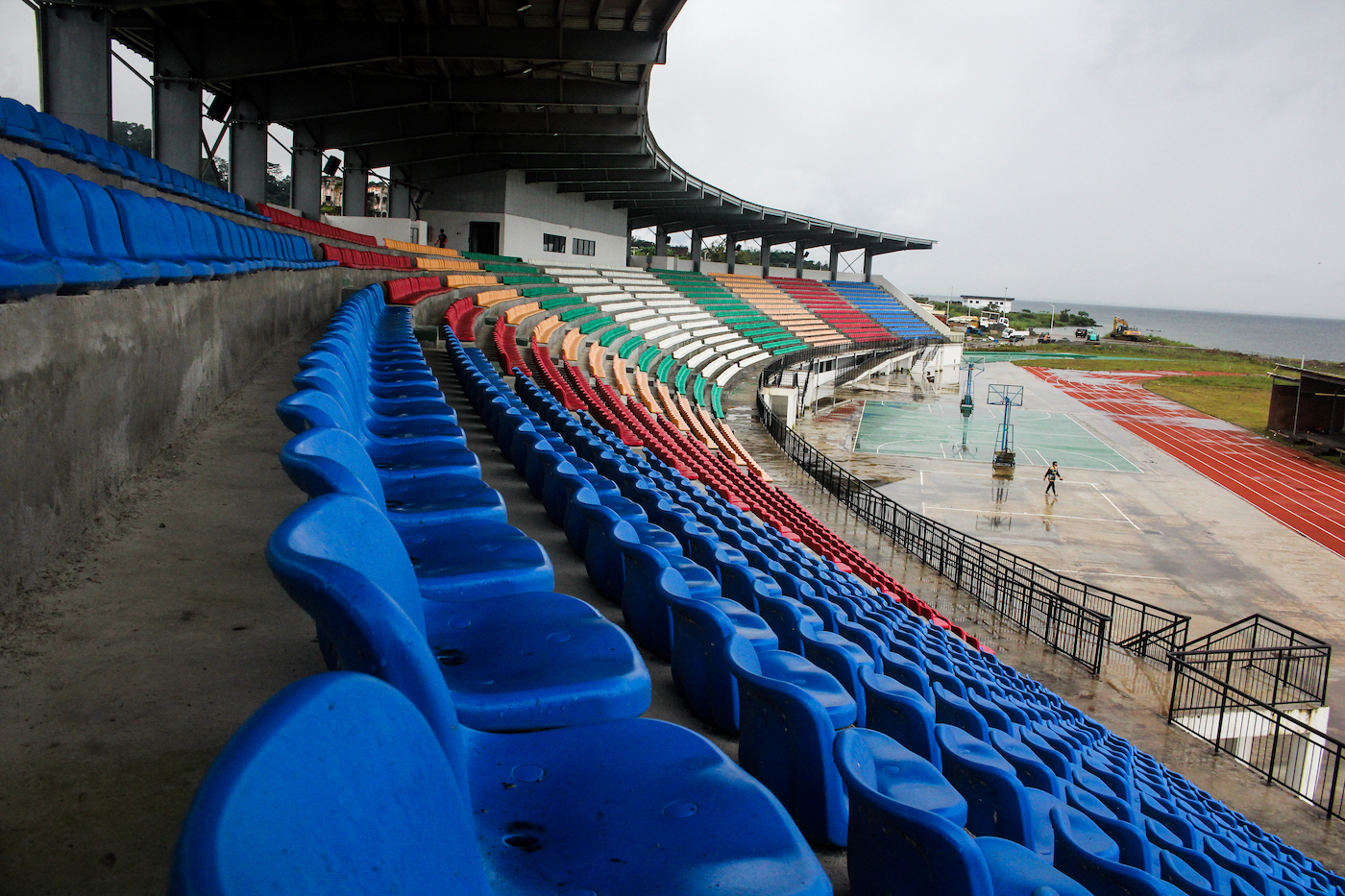
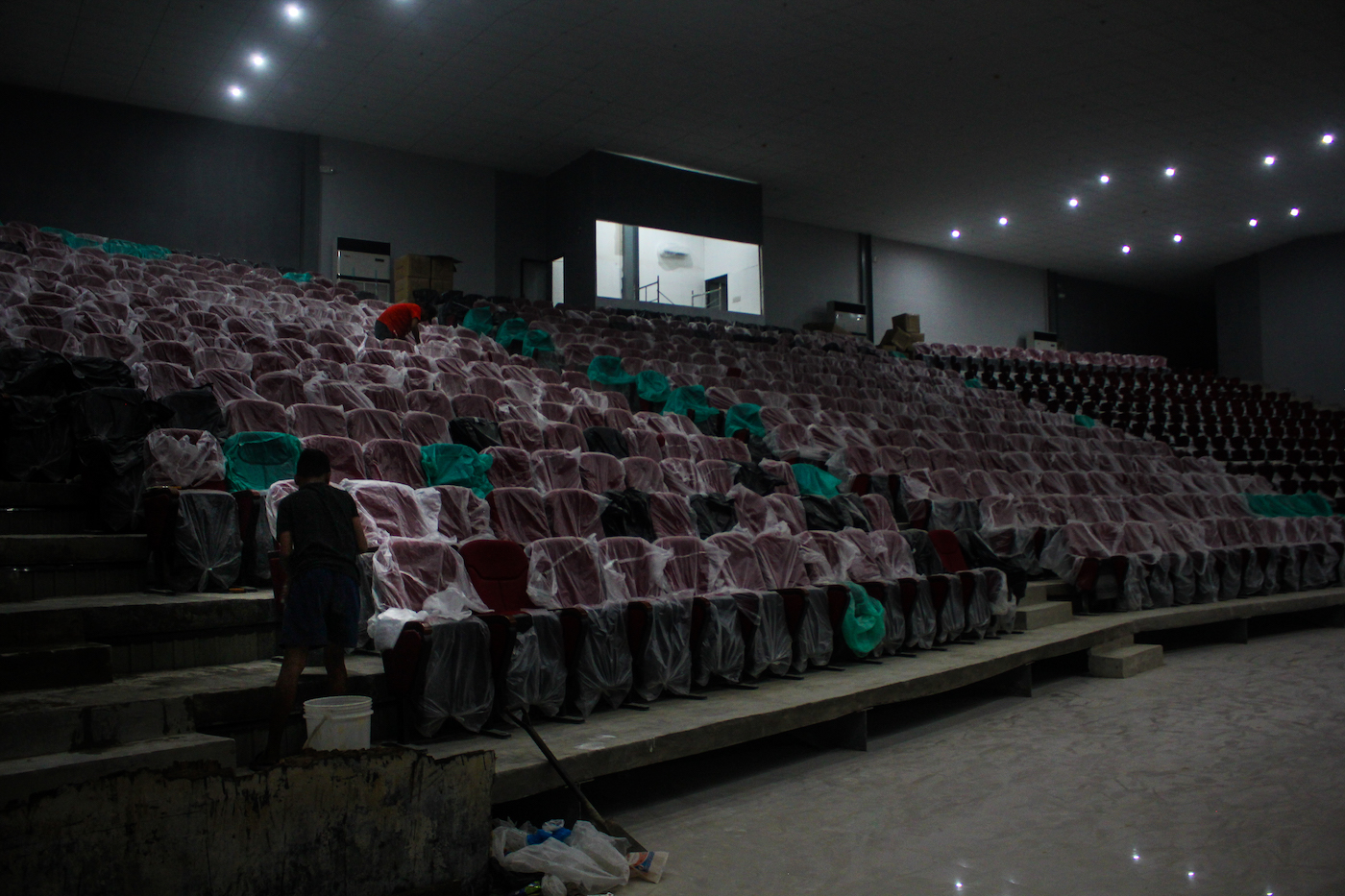
The white and green minaret of Bato Mosque, where the militants holed up with their hostages for months, now stands beside the newly built Marawi museum. Bato mosque itself has been reconstructed and has assumed a modern look. The Grand Mosque, too, has been repaired and has changed its color from green to gold.
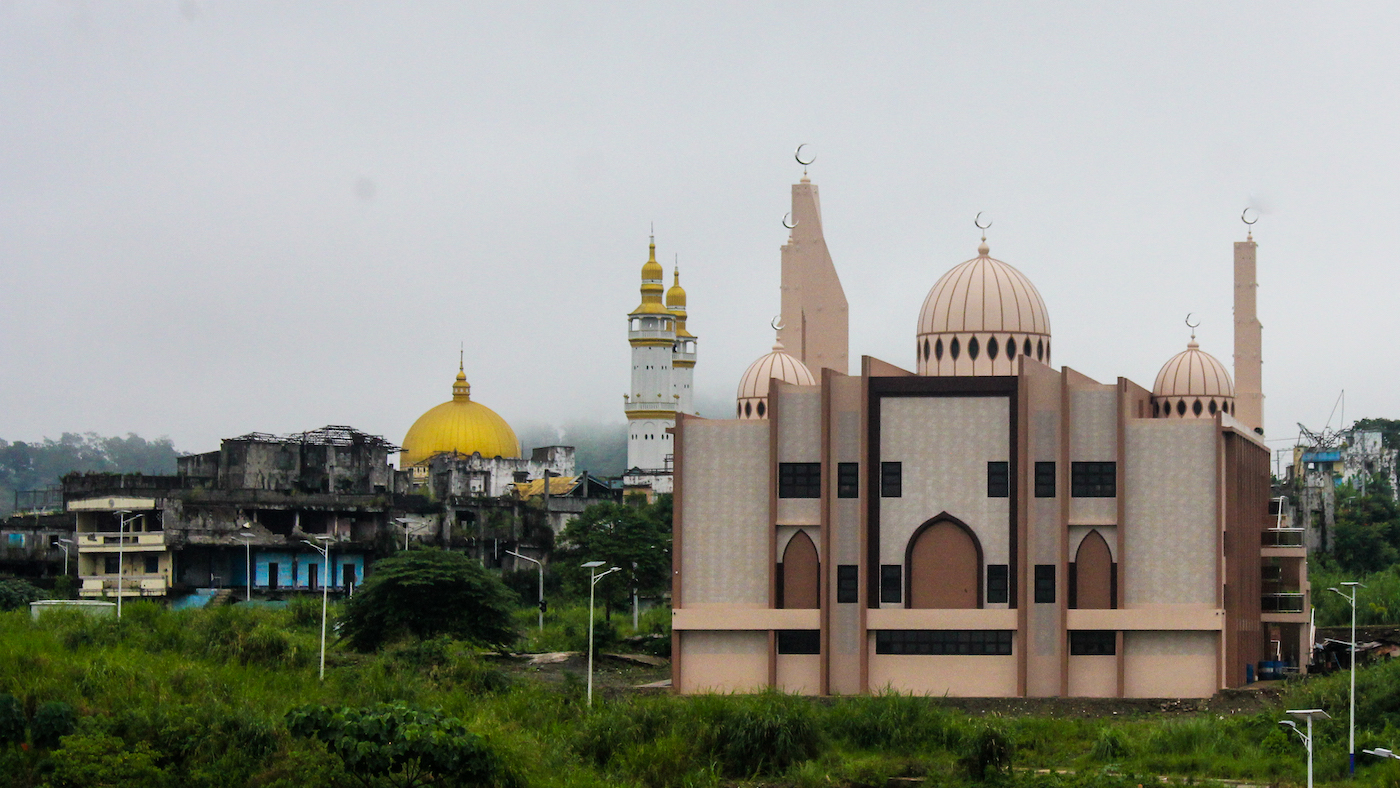
The rehabilitation work was divided into 22 projects, out of which 17 were completed or almost completed as of December 2022, according to TFBM’s December 2022 report. The rest of the projects are to be completed by December 2023, the report said.
More than half or 56% of the funds went to the National Housing Authority. It cost the agency P2.3 billion (US$41.7 million) to clear bombs and debris and P3.17 billion (US$57.5 million) to construct a road infrastructure, which has an underground facility.
The Marawi City LGU received almost P2 billion (US$36.3 million) or 19% of the funds for the construction of projects such as the Grand Padian Central Market (P443.25 million/US$ 8 million), the Peace Memorial Park (P312 million/US$5.6 million), the Lake Lanao Promenade (P380 million or US$6.8million), and 24 barangay or village halls.
The Local Water Utilities Administration was allocated about P1 billion (US$18.2 million for the construction of a Bulk Water System and Sewerage Treatment Plant, but the agency has yet to begin its work. TFBM Field Office Manager Felix Castro Jr. said they are expecting quicker action from the new head of the agency.
Marawi Compensation Board
Residents are now pinning their hopes on President Ferdinand Marcos Jr. to fulfill the failed promise of his predecessor. Marcos finally appointed the members of the Marawi Compensation Board (MCB), a body created under Republic Act 11696 to provide compensation for the loss or destruction of properties and loss of lives as a result of the 2017 Marawi siege.
The law is a product of hard work of Marawi’s civil society, which lobbied Congress for help in their rebuilding.
Lawyer Maisara Dandamun Latiph, the newly appointed MCB chairman, told PCIJ the board will fast-track its processes. She said they are planning to conduct consultations in the next two to three months in order to finish the crafting of the implementing rules and regulations of the law. (READ: All eyes on Maisara Latiph, who will decide compensation of Marawi siege victims)
She aims to formally begin accepting claims by May or before the siege marks its sixth year.
She described the task as “complex” and recognized that big challenges lie ahead. “We are expected to deliver our mandate to pay the monetary compensation for the personal properties as well as [compensation to the families] of [those who are] legally presumed dead and missing persons. We will also recommend interventions for further recovery and rehabilitation,” Latiph said.
The board has an initial budget of P1 billion (US$18.2 million) for the compensation of siege victims. The maximum amount claimants may receive is yet to be determined, she said.
Latiph belonged to the NGO community before she became a legislator and member of the Bangsamoro Transition Authority in 2019. Her colleagues at the civil society are counting on her to champion their causes.◉










